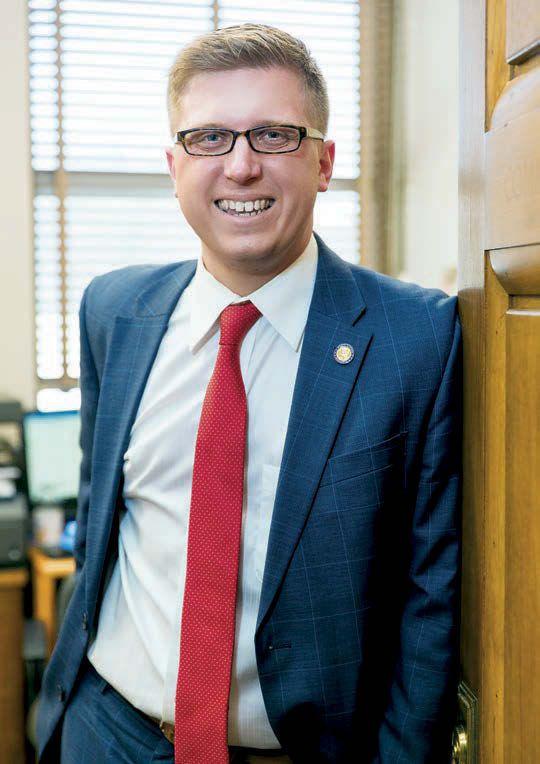
2 minute read
The Benefits and Challenges of Mentorship
By Corey Mock
Abraham Lincoln said it best: “Give me six hours to chop down a tree, and I will spend the first four sharpening the axe.”
Perhaps our 16th president was being facetious, but he was also describing an important truth. As young professionals, we all have the skills and talents necessary to do our jobs. We’re educated, trained and many of us have experience in our fields. But how much effort do we spend honing our skillsets mid-career?
Greater Grand Forks Young Professionals was founded in the early 2000s on the principle of encouraging young professionals to develop new relationships, invest in themselves and become more connected to our community. If our shared goal is to make Grand Forks a more vibrant community, we need a motivated talent base and ample opportunities to attract, train and retain young leaders.
GGFYP — like many other young professional networks — has excelled in providing large-group learning environments. But somewhere between passing the cheese bread at Lunch & Learn and attending a networking social at a professional development conference, we noticed a key ingredient was missing.
Mentorship is underappreciated, especially in today’s fast-paced work environments. Focused, small-group training is not only resource consuming, but takes initiative and often requires a longterm commitment before results are noticed. A world seeking instant gratification rarely has patience for any sustained mentorship program.
With strong encouragement from fellow young professionals who understood the importance of mentorship, GGFYP’s Protégé was born. Protégé is designed to connect half a dozen young professionals with an experienced professionals over three months of group and individual meetings.
Participants read Darren Hardy’s The Compound Effect as part of our in-house curriculum. Discussion with the mentor not only involves material from the text, but also includes applying lessons toward professional goals.
Mentorship does not end after each group meeting; mentors and protégés are encouraged to meet one-on-one at least three times during the program. At the conclusion of Protégé, we hope mentors and mentees have an ongoing, professional relationship that allows them to learn from one another over the course of their careers.
Results
GGFYP’s investment in this program has returned fantastic, albeit anecdotal, results. All participants who have completed the program have maintained a professional relationship with their mentors, many meeting quarterly on their own time.
Of the six participants in our inaugural program, two were offered promotions or new positions within six months and five have maintained regular meetings with their mentors after 18 months.
If you’re going to begin a mentorship program, or if you’re interested in participating in a program such as Protégé, consider the following: Keep participation sizes limited. Yes, there are economies of scale. But classes much larger than eight to 10 people reduce attention and make it difficult for a genuine mentor/mentee relationship to form.
Develop your program around a common text. Protégé has no tests or quizzes, but we find assigned readings are an ideal starting point for professional dialogue. Build diversity into your group. Bankers may have much in common with other bankers, but building a protégé class with unique backgrounds — and even competing industries — broadens the conversation and enriches lessons each person learns in discussion. Allow time for reflection. Reflection is as much a part of the learning process as participation, and our evaluations have shown positive results from built-in journaling and goal-setting exercises. The buddy system isn’t just for the swimming pool. Working in small groups — even groups as small as two — encourages protégés to hold each other accountable by sharing unique experiences.
Professional development is a major investment of time, energy and other resources. We’re often tempted to cut corners and find an easier method of achieving a similar result. But true growth comes from hard work and dedication. Whether you attend large conferences or intimate seminars, professional development helps maintain a clean, sharp edge on your professional skillset. GGFYP has had many successes with its Protégé program, and we strongly encourage other groups to replicate this approach, build upon its success and share your results widely. After all, mentorship, like all forms of education, is a collaborative endeavor. PB









